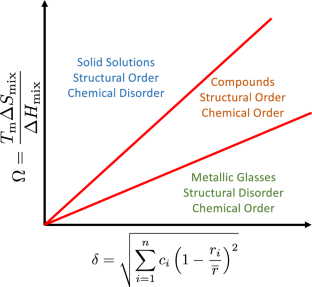AFLOW for Alloys
IF 1.5
4区 材料科学
Q4 CHEMISTRY, PHYSICAL
引用次数: 0
Abstract
Many different types of phases can form within alloys, from highly-ordered intermetallic compounds, to structurally-ordered but chemically-disordered solid solutions, and structurally-disordered (i.e. amorphous) metallic glasses. The different types of phases display very different properties, so predicting phase formation is important for understanding how materials will behave. Here, we review how first-principles data from the AFLOW repository and the aflow++ software can be used to predict phase formation in alloys, and describe some general trends that can be deduced from the data, particularly with respect to the importance of disorder and entropy in multicomponent systems.

用于合金的 AFLOW
在合金中可以形成许多不同类型的相,从高度有序的金属间化合物,到结构有序但化学有序的固溶体,以及结构有序(即无定形)的金属玻璃。不同类型的相具有截然不同的特性,因此预测相的形成对于理解材料的行为方式非常重要。在此,我们回顾了如何利用 AFLOW 资源库和 aflow++ 软件中的第一性原理数据来预测合金中的相形成,并描述了可以从数据中推导出的一些一般趋势,特别是关于多组分系统中无序和熵的重要性。
本文章由计算机程序翻译,如有差异,请以英文原文为准。
求助全文
约1分钟内获得全文
求助全文
来源期刊

Journal of Phase Equilibria and Diffusion
工程技术-材料科学:综合
CiteScore
2.50
自引率
7.10%
发文量
70
审稿时长
1 months
期刊介绍:
The most trusted journal for phase equilibria and thermodynamic research, ASM International''s Journal of Phase Equilibria and Diffusion features critical phase diagram evaluations on scientifically and industrially important alloy systems, authored by international experts.
The Journal of Phase Equilibria and Diffusion is critically reviewed and contains basic and applied research results, a survey of current literature and other pertinent articles. The journal covers the significance of diagrams as well as new research techniques, equipment, data evaluation, nomenclature, presentation and other aspects of phase diagram preparation and use.
Content includes information on phenomena such as kinetic control of equilibrium, coherency effects, impurity effects, and thermodynamic and crystallographic characteristics. The journal updates systems previously published in the Bulletin of Alloy Phase Diagrams as new data are discovered.
 求助内容:
求助内容: 应助结果提醒方式:
应助结果提醒方式:


